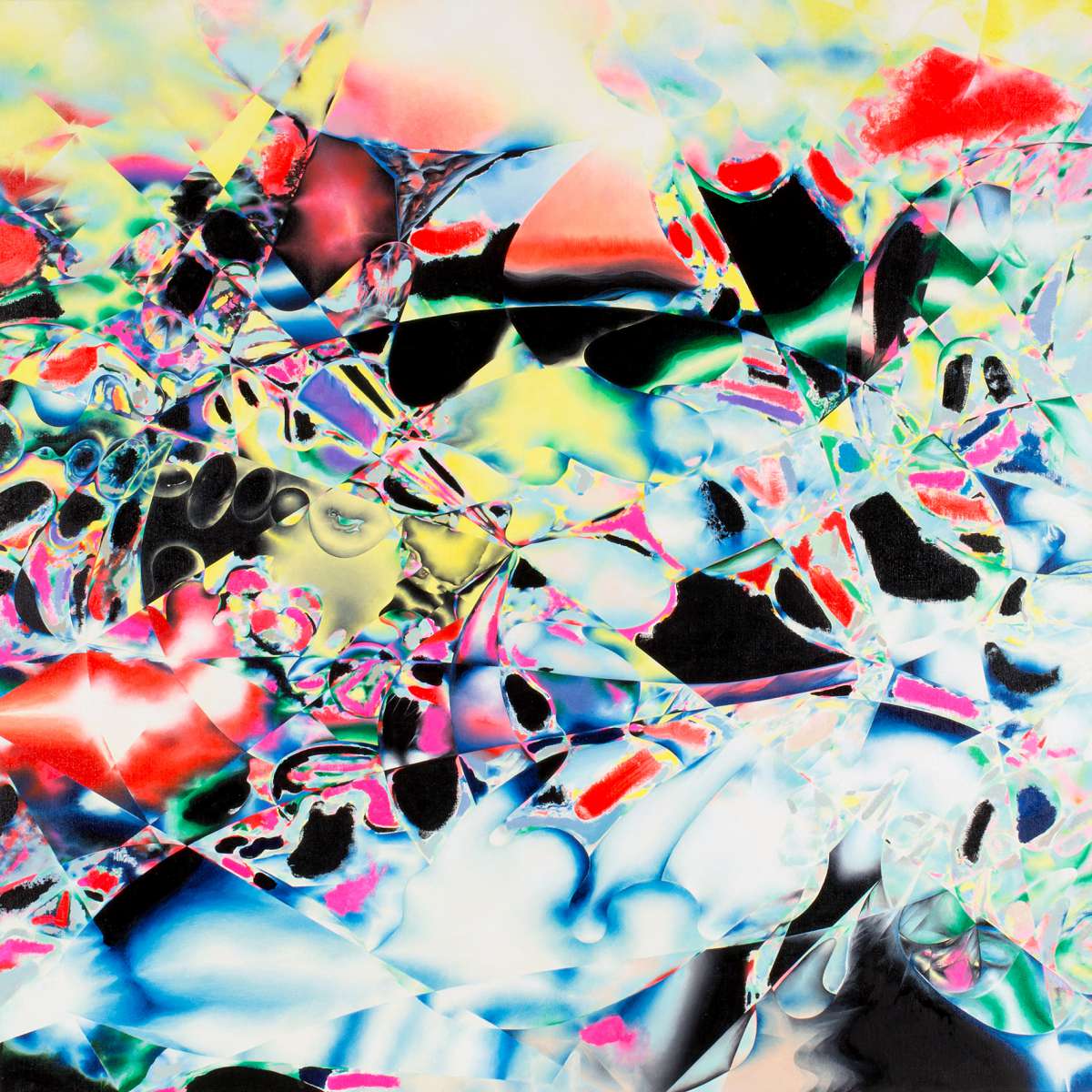Hiromi Iuchi
Baby Face Planet
Hiromi Iuchi's paintings are a reflection of who she is; intense, yet attractive. Her art simultaneously mixes the qualities of both the urban and the indigenous. -
Nobuyoshi Araki
“Last summer me and my boyfriend drove on a country road, when we saw a cafe called Baby Face Planet. I laughed and told him: ‘what a name for a cafe, Baby Face Planet!’ Since then I wanted to use it as a title for a painting. It was kind of a joke in the beginning - I thought it was a ridiculous and hilarious name, but it certainly stayed on my mind. As time went by, I thought this word could comprehensively explain/represent my works, because my paintings are almost all sceneries – even though they are often highly abstracted. I research the original scenery through painting; sometimes I feel I am just a shaman or medium, someone who borrows the natural power of the universe and shifts it onto canvases. Those sceneries create a new place called Baby Face Planet, which is ageless, soft, tender, a bit awkward, and transcendental.”
After the highly successful group show Il Tenki, on show at Willem Baars Projects in 2013, the work of Hiromi Iuchi (1981) proved to be an exciting addition to our gallery program; a new narrative we were excited to explore further. Her paintings in particular - which are the result of a different (cultural) background - challenge our Western-oriented view on abstract art, and provide us with a new perspective.
The paintings by Iuchi are both a meditation on her immediate natural surroundings, as well as an attempt to give shape to a myriad of possible worlds and viewpoints. In the Mountain Stripe and Mountain Quartet series, Iuchi explores this notable feature of the Japanese landscape, while also alluding to the work of earlier Japanese artists, such as the famous woodcuts by Katsushika Hokusai and Utagawa Hiroshige.
The exhibition also includes entirely imaginary scenes, for example Twilight Utopia. This vibrant, vigorous painting alludes to the over the top Japanese pop art culture and the work of artists like Takashi Murakami. These detailed and expressive paintings are juxtaposed by more subdued work, such as The Pool series. Baby Face Planet proves that Iuchi has mastered the balance between pop kitsch figuration and geometric abstraction. Within one canvas - as in the show as a whole, Iuchi alternates between the rigid and the fluid, marrying straight-forward minimalism with psychedelic apocalyptic visions.
Morgan Betz, who brought Iuchi’s work to our attention, describes her work as follows: “solid, liquid and gaseous states clash in a whirlpool of opposing and attracting forces, we could be witness to the millisecond after the birth of a new universe, or on the other hand the final collapse of a giant black hole that has absorbed all that once surrounded it.”

















